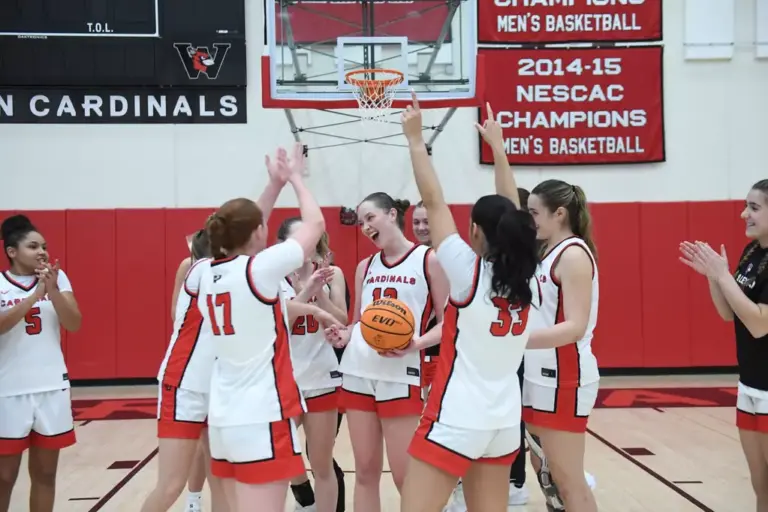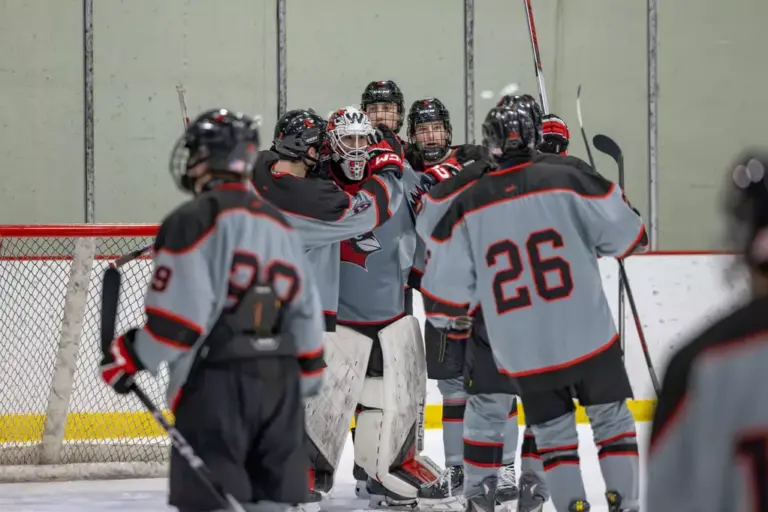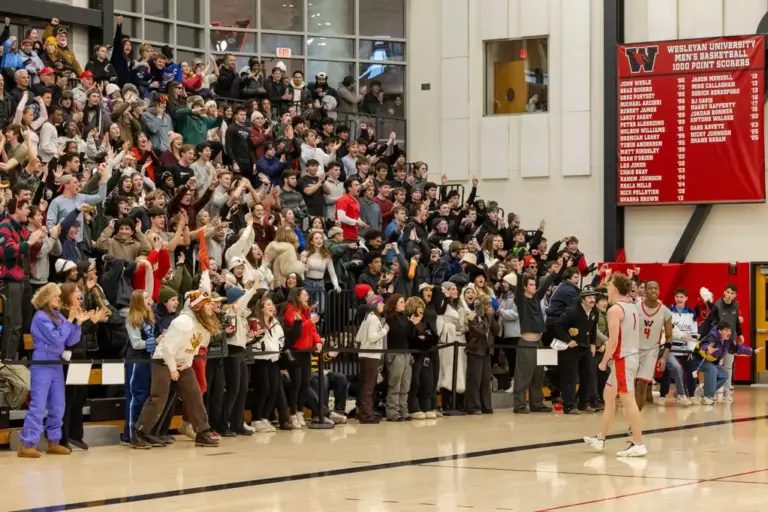A Reflection on Learning to Care About Hockey

I’ve never really been one for sports. That’s not much of a surprise. You might be able to guess that from the fact that this article, appearing in the final issue of the semester, is my only one written for the Sports Section. Or you could just take a brief look at me and make a broad, but correct assumption based on my overall vibe. I could count the number of collegiate sporting events I’ve attended on one hand with a couple of fingers missing. When I think of arenas like Brooklyn’s Barclays Center to Boston’s TD Garden, my mind goes not to the teams that play there, but to the concerts I’ve seen in those spaces.
But I also hail from a household where sports were always prevalent. My father self-identifies as a “degenerate sports fan,” and watches the games of almost every team in New York City, my hometown, from the Giants to the Knicks. While he follows a wide range of sports and teams, he has a special soft spot for the New York Rangers. The Rangers have a rich history and compelling story arc that, combined with my own family’s connection to them, have, for the first time in my life, made me somewhat emotionally invested in a sport.
Growing up, the Rangers were always in the air. Among the important years drilled into my head, on a mantel shelf right next to 1965, the year my parents were born, and 2000, when I was born, are 1940 and 1994, the only two years that the Rangers, since their founding in 1926, in the early years of the National Hockey League (NHL), have won the Stanley Cup. While I was constantly aware of the Rangers, my dad’s fandom didn’t rub off on me much. It didn’t help that a game he took me to when I was around eight years old, with the intent of getting me excited about hockey, ended up being one of the dullest ones he recalls having ever seen, with the Rangers falling behind in the early minutes of the game and never making it back. Instead, my sister, with her frequent attendance of games and slowly expanding collection of jerseys, seemed to be the one poised to inherit the mantle of Rangers fandom.
But in the last couple of years, I’ve found myself increasingly invested in the Rangers: watching game highlights, nervously checking the scores of an ongoing game while I’m busy with work, and even watching games on TV at home with a genuine feeling of caring about what happens. When, last week, they were eliminated by the New Jersey Devils in the first round of the playoffs, I felt a genuine sense of loss.
Part of what makes the Rangers such an exciting yet frustrating team to follow is that they often feel like they’re about to do better. This season, for example, they finished third in their division, and ninth-best in the NHL overall. Definitely good, but not quite great. They’re far from the level of bad where you give up hope of them ever going far, like the position the Knicks were in for most of my childhood. They’re also not at the level of great where going far into the playoffs is taken as a given. Instead, they’re frustratingly often on the verge of greatness, utterly dominant one game and suddenly incompetent the next.
Because of this, there’s a looming sense that they’ve often failed to live up to their potential. A cause of great mourning in my household was the fact that Henrik Lundqvist, the phenomenal goalie who spent his entire 15-season career playing with the Rangers, never led them to a Stanley Cup win, though not for lack of trying. The Rangers went to the playoffs in 11 out of Lundqvist’s first 12 seasons, even making it to the finals in 2014. But as good as the team has been some seasons, a championship has been continuously, tantalizingly out of reach for nearly 30 years. Fans can only hope this will make an eventual win all the more sweet, as it was for the fan who famously held up a sign reading “NOW I CAN DIE IN PEACE” when the Rangers won the Cup in 1994, ending a 54-year championship drought.
Something else that kicked my passion for the Rangers from dormant to active was a different hockey game I attended over Thanksgiving break last fall. I went with my parents and sister to Madison Square Garden to support the Cornell University men’s hockey team, as my dad is a Cornell alumnus and my sister is a sophomore there. Their opponent, the University of Connecticut, seemed formidable going into the game, boasting a 10–2–3 record at the time, as opposed to Cornell’s 5–4 record. I was bracing myself for a close game, or even for Cornell to be steamrolled by UConn.
But there was magic in the air that night at the Garden. Cornell scored 32 seconds after the puck dropped. Then, they scored again 42 seconds later. The energy from the crowd, predominantly consisting of Cornell fans, was electric. Over the course of that game, Cornell kept pressing, and UConn never found their footing. At the end of the night, Cornell emerged victorious, 6–0.
While it wasn’t a Rangers game, or even an NHL one, that Cornell game opened my eyes to the true possibilities of how exciting hockey could be. For the first time, I witnessed firsthand the symbiotic relationship between the energy of the crowd and the athletes on the ice. My following of the Rangers, which had once been cursory, became enthusiastic. When the Rangers’ season kicks off again in the fall, maybe, for the first time in my life, I’ll enthusiastically volunteer to go to a pro sports game.
Oscar Kim Bauman can be reached at obauman@wesleyan.edu.








Leave a Reply